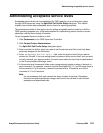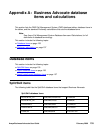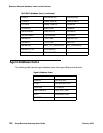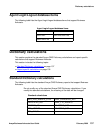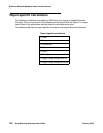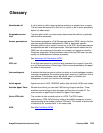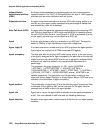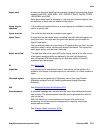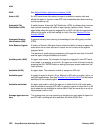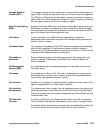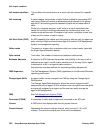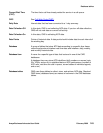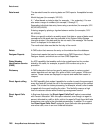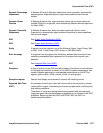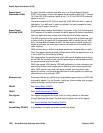
ASA
Avaya Business Advocate User Guide February 2006
141
Agent state A feature of agent call handling that indicates the agent’s current state. Agent
states include ACD, ACW, AVAIL, AUX, UNSTAFF, DACD, DACW, OTHER,
UNKNOWN, and RING.
Data about these states is displayed in real-time and historical reports. See
the definition of each state for additional information.
Agent surplus
condition
The condition that exists when one or more agents are available to handle a
call for a specific skill.
Agent terminal The voice terminal used by a contact center agent.
Agent Trace A report that can be helpful when evaluating how well individual agents are
using their time. You must start an agent trace before you can obtain an
Agent Trace report.
You can activate traces for a maximum of 25 agents at any one time. You can
select the dates in which the trace will receive information. This report lists
each agent activity and the time it occurred.
Agent work time The total time with one or more ACD calls ringing, active, or on hold for any
of an agent’s assigned skills and optionally, the total call-related and
non-call-related ACW time divided by the total time staffed in this skill
expressed as a percentage.
AI See Auto-In (AI)
.
Algorithm A prescribed set of well-defined rules or instructions for the solution of a
problem, for example, the performance of a calculation, in a finite number of
steps.
Allocated agents Agents with an assigned role of Allocated; that is, they have Percent
Allocation assigned as a call handling preference through Business
Advocate.
ANI See Automatic Number Identification (ANI)
.
Announcement A recorded message that normally tells the caller what destination the call
has reached. The announcement also often tries to persuade the caller to
stay on the line.
With Call Vectoring, announcements can be part of a vector's call
processing. An announcement is assigned to a vector by entering an
announcement number.
ASA See Average Speed of Answer (ASA)
.



